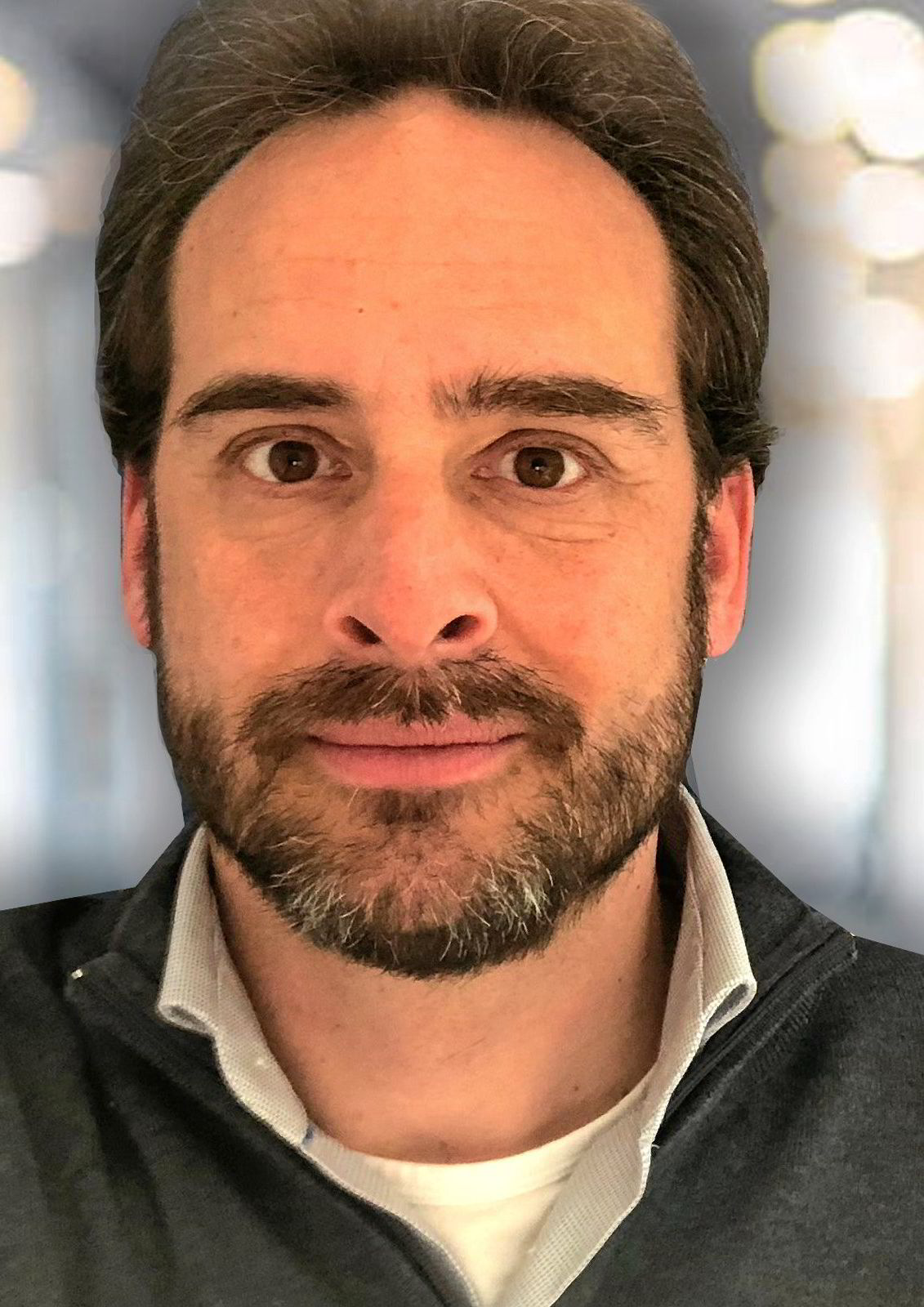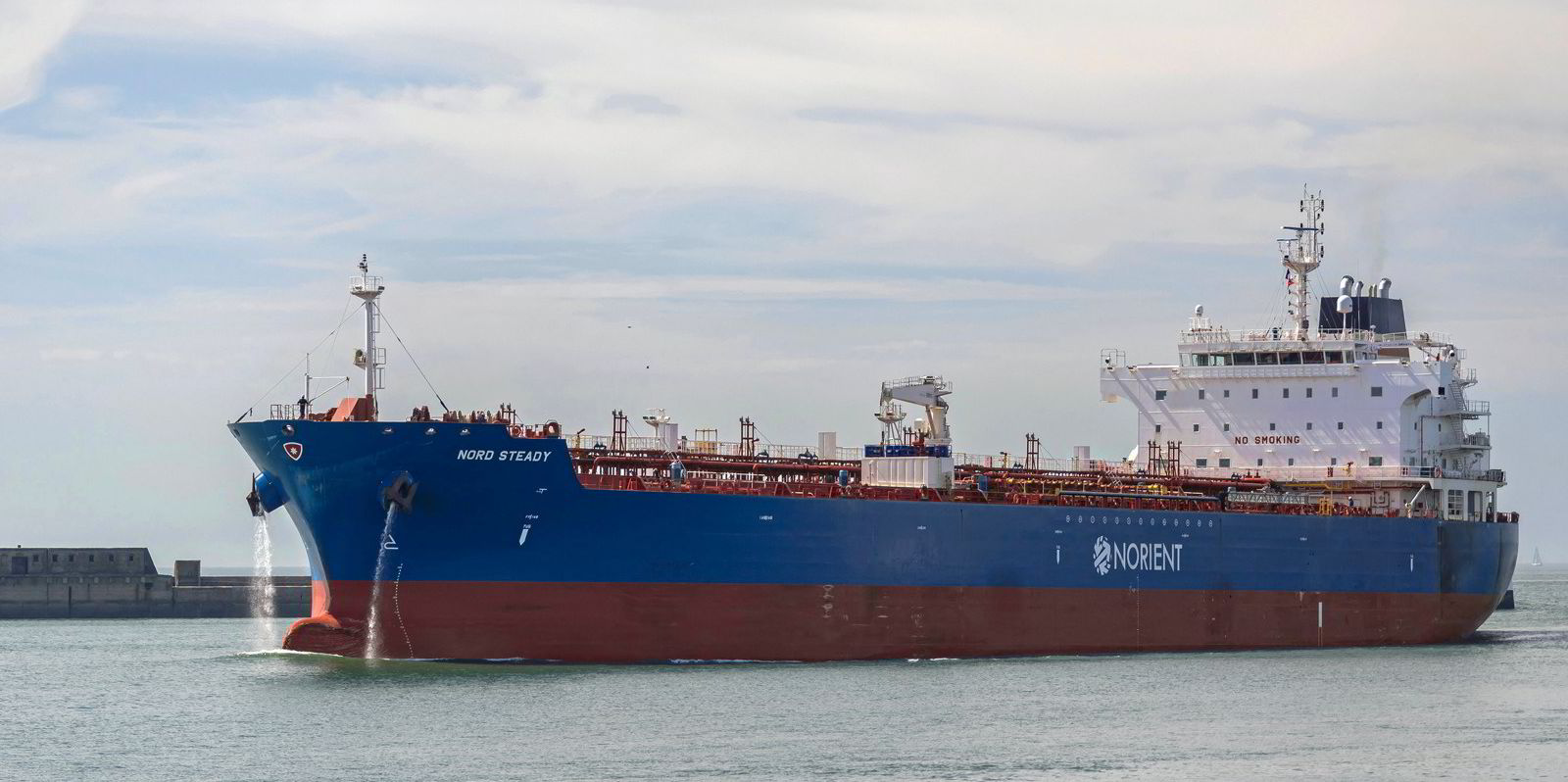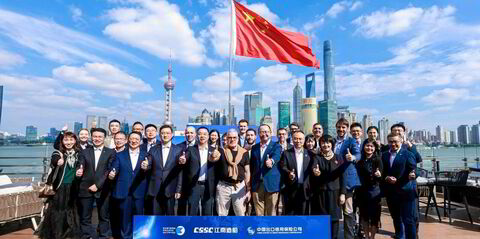Norden has teamed up with greenhouse gas insetting platform 123Carbon to offer the Denmark bulker and tanker operator’s customers options to tackle emissions in their supply chain.
Copenhagen-based Norden will use the new 123Carbon platform to turn its reductions in CO2-equivalent emissions reductions from biofuels into a token that it can allocate to customers.
Those customers will be able to apply that insetting token toward reductions in their indirect supply chain emissions known as Scope 3.
While carbon offsetting is facing mounting criticism for applying emissions reductions outside of shipping, insets involve a different approach by reducing greenhouse gases within the industry’s well-to-wake emissions footprint.
Adam Nielsen, head of logistics and climate solutions at Norden, said insets are not new, but it is early days for using them in shipping.
“We believe that carbon insetting will play a major role in accelerating the uptake of low-carbon fuels by connecting the demand for green freight with the supply, while bridging availability constraints,” he said.
Carbon123 managing director Jeroen van Heiningen said carbon inset tokens are financial instruments that allow cargo owners to invest in upstream decarbonisation and then claim the benefits.
And tokenising emissions reductions as a way to add flexibility to shipping emissions reductions.
“It’s about differentiated allocation,” he told TradeWinds. “One company wants more decarbonisation than the next. We’re in a voluntary market, so you need to make sure that you can accommodate that.”

Biofuels are expensive compared to fossil fuels and are not available everywhere.
Consider one freight buyer on a voyage where biofuels are available that is unwilling to pay the higher cost. The token for those emissions cuts could be applied to another customer who is willing to pay for decarbonisation but may be shipping from a region where biofuels are not available.
“A carbon inset connects what we call the coalition of the willing … to the coalition of those that are able to do it,” he said. “You eliminate so many barriers.”
Norden and 123Carbon are also working with consultancy AllChiefs and Verifavia, a verification firm focused on the transport sector.
Verifavia general director Nicolas Duchene pointed to another key difference between carbon insetting and offsetting.
“Unlike carbon offsetting, the entire chain of custody for the insetting process is independently verified — as well as the reductions corresponding to an intervention — enabling genuine transparency over carbon reductions supported by reliable certification,” he said.

Read more
- Podcast: Inside the effort to defuse the ‘time bomb’ tanker
- Editor’s Selection: Ince insolvent, Vafias spins again and dark fleet goes grey
- Green Seas: Appeals court fight brews over collisions between whales and ships off California
- Podcast: The power of the swap in drive for electric shipping
- Can this Brazilian tug and barge company reach net zero by 2030?



